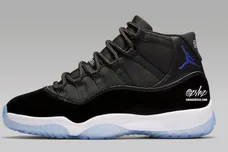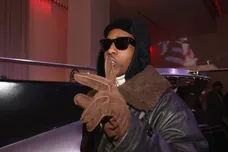Rapsody albums are masterclasses in lyricism, production, and – above all – authenticity. The North Carolinian rapper is also one of those artists that seems to improve with every release. After putting out a few records with her first group Kooley High, she was signed by 9th Wonder and released her first solo mixtape in 2010 at age 27. She would go on to release two follow-up mixtapes before dropping her first full-length album, The Idea of Beautiful. Her dream of a rap career began when she was ten years old and first saw MC Lyte’s video for “Poor Georgie.”
In a 2020 interview with Talib Kweli on People’s Party, Rapsody said the track “made her fall in love with storytelling.” It also convinced her that rap was a viable path for a woman. Since her first album came out, a steady stream of music has continually poured out of her. With another mixtape and three LPs released over the next 14 years, Rapsody is one of contemporary hip-hop’s best women MCs. As difficult as it is to rank such a talented artist’s output, we’re going to go through all the Rapsody albums and mixtapes, starting with the less-than-perfect and moving up to the best.
Thank H.E.R. Now (2011)
On her second mixtape, Rapsody surrounds herself with an impressive company of collaborators. The likes of Raekwon, Big K.R.I.T, Mac Miller, and Murs all play small roles in this ambitious project, though Rapsody remains center stage. The emcee's storytelling abilities are evident on the track “Lampin’,” as she takes the listener through her struggles and victories. Moments like these show why Rapsody is such a relatable rapper. Other tracks like “Fly Girl Power!” and “Top Five” reveal her ability to find harmony with featured rappers and her unstoppable wordplay. While the mixtape has a very strong beginning, it ultimately struggles a little to keep its momentum across 20 tracks. There are gems at the tail end, but listeners may have some trouble sticking around to experience them.
For Everything (2011)
Rapsody's third mixtape, For Everything, is a moment of significant development for her art. It was a catalytic event that helped synthesize her many strengths as an emcee. The mixtape feels highly autobiographical, with songs like “A Crush Groove,” “This Woman’s Work,” and “The Autobiography of M.E.” all taking listeners through intimate experiences and pivotal events in her personal life. The last of these, “The Autobiography of M.E.,” is a high point, discussing her upbringing as a Jehovah’s Witness, losing her virginity at 16, and being rejected by Pharrell Williams.
This record also features her holding her own on collaborations with heavyweights like Kendrick Lamar and Freeway. For all of its strengths, the mixtape is a bit constrained by the range of beat selection. Because of this, it might become slightly repetitive for some listeners. Even so, For Everything was a strong return to Rapsody’s impressive debut, Return of the B-Girl, and helped show the world she had no intentions of slowing down.
The Idea Of Beautiful (2012)
Of all the Rapsody albums, The Idea of Beautiful makes the largest leap in terms of lyrical growth. This debut full-length features a distinct and refined voice that’s come a long way since Return Of The B-Girl, her first mixtape. In some ways, this album continues where the autobiographical depth of For Everything left off. With tracks like “Good Good Love” and “In the Town," Rapsody shows us just how much her storytelling capabilities have developed.
In other ways, she uses the album as a love letter to hip-hop, with tracks giving tasteful nods to her influences. “Kind of Love” and “Destiny” are two that stand out – the former as a thank you to Lauryn Hill and the latter as a direct letter to Jay-Z. Though certainly not falling to the level of being filler, a couple of tracks on the album feel out of place. This minor unevenness is almost negligible but does set the album lower than her later full-length releases.
Return Of The B-Girl (2010)
It might seem odd to place Rapsody’s first mixtape so high up on this list – especially after mentioning how The Idea of Beautiful shows so much evolution. Think of it like this: mixtapes can be thought of as a kind of proving ground where artists experiment and showcase their raw talent. Rapsody's first, Return of the B-Girl, with its Star Wars-styled cover, is much more than this. It’s much more than anyone could anticipate from a first mixtape.
Rapsody came out of the gates with a mixtape that sounded like an album. It showed the hip-hop world how serious Rapsody was, with its painstakingly crafted verses and highly detailed production. In that regard, you can’t help but notice 9th Wonder’s heavy influence. Guest appearances loom large as well, with verses from the likes of Mac Miller and Big Daddy Kane. Despite all of this, Rapsody is always in front as a commanding presence throughout the tracks. The influence of MC Lyte and Lauryn Hill also shines through in the rapper’s versatility, something that would become more and more pronounced in the ensuing years.
Laila's Wisdom (2017)
Laila’s Wisdom challenges contemporary hip-hop trends more than all of the Rapsody albums. While always considered a conscious rapper, she takes things to an entirely new level in her sophomore effort. The record is a work of self-love that earnestly avoids any displays of arrogance. This record, dedicated to Rapsody’s late maternal grandmother, Laila, is the culmination of years of relentless effort. It’s no secret that hip-hop often suffers from a lack of women's perspective, and it’s here that Rapsody proves herself to be the antidote. Not every single moment of the album is fully realized, but as a whole, it showcases incredible storytelling prowess and lyrical versatility. Some tracks lean light-hearted, and some are deep dives into complex topics, but the thread connecting them all is thoughtful, relatable narratives with compelling delivery.
She Got Game (2013)
The She Got Game mixtape was released between Rapsody’s first and second albums. It is probably her perfect mixtape and is an unending onslaught that blends her various talents. She Got Game is so fascinating because it is a many-sided experience. Filled with soul samples and warm tones, it displays a purposeful and infectious '90s vibe. Rapsody’s performance on the mixtape is as thoughtful as ever but also showcases a soothing, effortless side. There is serious lyrical dexterity on this record that leaves the listener feeling like they’re watching a hip-hop great’s rise to the top. From “A Song About Nothing,” which magically makes daily minutiae feel incredibly interesting, to “Dark Knights,” where Batman puns and quips rain down relentlessly, the mixtape is a work of relentless lyrical development and intellectual growth.
Please Don’t Cry (2024)
The latest Rapsody album, 2024's Please Don’t Cry, is a sonic journey. This record deserves a lot of attention and shows just how much Rapsody continues to contribute to hip-hop. Even across 22 tracks, the record hits nearly every mark with precision. On earlier releases, Rapsody seemed to have trouble maintaining her remarkable abilities over such long playtimes. Please Don’t Cry shows that she now has the stamina for that and perhaps more.
Some of the tracks on this album are elite. Take “DND,” for instance, which somehow seamlessly weaves together the essence of music from cities as diverse as Chicago, Los Angeles, and Atlanta. From the first track, Rapsody unavoidably draws you into her life and gives you more of what she gave to Eve. Music that you can carry with you, that isn’t just something to bump at a party or in the car. The record shows that Rapsody is far from done when it comes to pushing boundaries and moving hip-hop to a new level.
Eve (2019)
In today’s less-than-cohesive hip-hop landscape, Eve stands tall as one of the most unified records of the 2010s. This record is an unbelievably well-crafted concept album, an increasingly rare creature in our digital world of rapid-fire singles and EPs. The record stands out because it seems to almost completely eschew any concerns over Billboard chart rankings. It is a work of love that flourishes on narrative cohesion and an alarming depth of storytelling. The amount of labor that went into Eve is evident on repeat listening when you begin to realize that everything–down to the syllable–is purposeful. The multi-dimensional songs reveal their layers slowly over time, rewarding fans who return again and again. All of this works to make Eve a modern classic
Rapsody’s unwavering authenticity blares through like hi-beams on a deserted country road at night. As the album unfolds, one thing becomes clearer and clearer: Rapsody is not vying to be the best woman emcee in the game. She is shooting to be one of the greatest rappers who ever lived. Eve is one of those special albums that–without any doubt–manifests the age-old wisdom that genuine feeling and hard work will always shine through.









